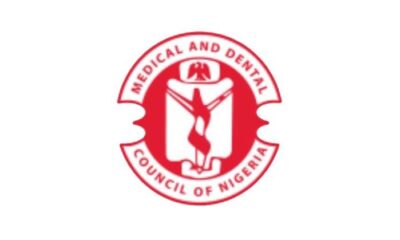Oil & Energy
Energy Conservation: Lessons For Posterity

Kozo community, a
coastal habitation in Bodo, Gokana Local Government Area of Rivers State, once hosted over four thousand persons that earned their livelihood, predominantly from the natural treasures of the area.
The teeming inhabitants of the community were mostly fishermen and women who eased out their daily existence on the natural ambience of the area which satisfied their craving for game and stalking for survival.
This was indeed their most cherished possession and inheritance.
Today, the once thriving rural economy and communal living are almost extinct. The barest shred of human existence in the coastal settlement is gone. The inhabitants have been rendered homeless and have migrated out of their abode in search of alternative means of livelihood.
No thanks to reckless oil exploration and exportation in the area which have brought colossal damage to the natural environment and left the displaced inhabitants in a state of misery.
A visit to Kozo community recently revealed the extent of devastation of the natural environment. There was visibly no sign of life but desolation. The sprawling cracks where the fishermen launched their daily expedition was laden with thick layers of crude oil. The mangrove reserve that harboured the sea shell food was completely burnt off.
A former inhabitant of Kozo community, Peter Ledisi, who now lives in Bodo Town, in Gokana Local Government Area, of Rivers State told The Tide correspondent that he was born in Kozo community and grew up in the area until the sad experience of oil polution displaced his family.
Ledisi, who is 35 years old said his parents took care of him and his siblings through the proceeds of fishing but today life has become so difficult for the family as their means of livelihood is destroyed.
“That place you see (Kozo community) used to be our home for the past decades, we grew up there and pursued life with happiness, we were contented with what nature provided for us through fishing, every growing child enjoyed fishing there because it provided fun for us and filled our desire and passion for game and we also made money from it. Today, we have been displaced out of our home by oil pollution. Life is so difficult for us”, he lamented.
Another displaced inhabitant of Kozo community, Miss Tornubari Sakpugi disclosed that life has become very unbearable for her as a result of the environmental pollution of their natural home.
Sakpugi, a fish seller, said her business has collapsed as her customers can no longer go on their fishing expedition due to the pollution of the rivers.
“I used to buy fish in higher quality from fishermen and sell. The business helped me a lot and I was able to provide for my needs, but today, things are very hard for me. It is a terrible experience for you to move out of a place where you earn a living without any alternative means of livelihood, we want the polluted area to be cleaned so that we can return home. They are talking about UNEP report, but we are not seeing a development, the damage is too much, we are suffering”, she declared.
The story of Kozo community is similar to that of other oil bearing communities in the Niger Delta. These communities suffer wanton depletion of their natural resources through oil spillages and gas flaring. The land, plants, animals and marine life are badly impacted through the resultant pollution, making life meaningless for the inhabitants of the affected areas.
Fishermen at some major water fronts in Port Harcourt also have similar story to tell.
Iyalla, a fisherman who resides at Ibadan water front in Port Harcourt told The Tide correspondent during a visit to the area that fishing business is no longer lucrative compared to the past.
Asked the reason for the decline in the business, he said the rivers have been contaminated with spilled crude oil from bunkering.
According to Mr Iyalla, years back, fishermen did not have to go to the deep sea before they were rewarded with good catch.
But today, he said they have to paddle through hard and wander up sea amidst wreckages of boats and badges and sometimes return home with little or no catch. He explained that illegal refining of crude oil and bunkering activities smear the rivers with wasted crude, making bloated dead fishes to float on top of the rivers. He added that; “ the fishes that we catch these days are tasteless because of the polution of the rivers”.
Experts have however identified this ugly trend as an indication of the total cost of aquatic life which is the hallmark of coastal habitation.
A Chemical Engineer, Dr Ujile Uwajiogak said the burning of our natural reserves, especially through the “cooking of crude oil” put the life of the present generation and that of posterity at risk.
Speaking in an interview with The Tide, the Associate Professor of Chemical Engineering at the Rivers State University disclosed that it takes over 50 years for a polluted site to regain its lost reserves. Using the experience of the Civil war as an example, the university teacher said, the bombing of oil facilities in the Niger Delta during the war left in its wake devastating effects on the creeks and coastal channels of the region.
He said after 50 years of the war, nothing has grown in the impacted sites and the flourishing mangrove forest is replaced by palm that has no economic value.
“The indulgence of criminal elements in the cooking of crude oil is very destructive to our ecosystem and also has health implications. Research has shown that illegal bunkering will increase cancer in the region. What is the sense in taking a few components of the product and wasting the rest on aquatic life? Our environment was preserved and bequeathed to us by our forebears, but today we are destroying it, uninitiated to the wonders and possibilities of western technology, they lived longer and happier than the present generation, the average life span of a Niger Delta person today is 50 years, this is indeed pathetic”.
In the views of an Environmental Sociologist, Dr Steve Wodu, human insensitivity to the protection of his natural environment has worsened problems of environmental degradation. To him, some of man’s actions towards his environment are tampered insanely on ignorance or deliberate obstinacy billed to ruin existence. “Otherwise what will be the rationale behind indiscriminate burning of natural energy reserves or bad sanitation habits such as littering of wastes and lack of care of the natural surrounding,” he asked rhetorically.
Dr Wodu, postulated that a new era of prosperity can only blossom when we begin to treat our environment with the same sanctity with which we treat our very life.
In his view, the Director of the Institute of Conflict and Gender Studies, University of Port Harcourt , Prof Fidelis.
Allen, said a blighted environment portrays the nakedness of our civilisation and turns man’s dream into despair. Prof Allen, who is an environmental crusader, called for a more holistic approach towards the restoration and preservation of the natural environment.
According to him, only through such holistic approach and sound environmental awareness campaign can the ethical violation of environmental rights be curtailed and sustainable environmental growth attained.
To achieve a better objective in environmental management, he said, “the exploitation of resources, the direction of investment, the orientation of technological development and institutional change should be in harmony to enhance both present and future potentials to meet human needs and aspiration”.
He called on multinational companies operating in the Niger Delta region to carry out their activities with a sense of social responsibility by adopting international best practices and save the Niger Delta environment from destruction.
He described the Ogoni clean-up exercise as critical to the eventual remediation of other impacted sites in Niger Delta communitees and called on all affected stakeholders to expedite action to make the clean up exercise a success.
Also, a group known as the Ogoni Youth Federation frowned against what it considers the deliberate delay in the implementation of the United Nations Environmental Programme (UNEP) Report in Ogoni land. National Coordinator of the group, Comrade Legborsi Yaamabana, who spoke with The Tide in an interview blamed Shell, for the non implementation of the UNEP report, stating that the company was rather concerned about resumption of oil exploration activities in Ogoni than the restoration of the despoiled Ogoni environment.
Comrade Yaamabana called on Shell to provide potable drinking water in Ogoni land and carry out medical programme in the area to save the people from various strange ailments associated with environmental pollution.
Comrade Yaamabana also called for a national environmental policy that would specifically address the environmental problems in the Niger Delta and other parts of the country.
He said such policy must take into consideration that solid waste management is an important aspect of environmental planning, which must be prioritised rid our society of indiscriminate dumping of industrial waste.
Realising the importance of the natural environment, the American novelist, Henry Beston warned: do not do dishonour to the earth lest you dishonor the spirit of man. The implication of Beston’s warning is that by destroying his natural environment, man sets to consume himself in an escapable catastrophe, the possibilities of which are too obvious to be ignored.
However, the production and consumption of energy is today a major indicator of modernisation process. Our modern civilisation is fuelled by the energy sector, particularly oil and gas and this involves exploratory activities with attendant pollution problems and significant local and global implication.
It is therefore suicidal to see that the very natural ingredients that nourish our lives are washed away in the name of technology or industrialisation. It is left for us therefore to heed to Beston’s warning or perish.
Taneh Beemene
Oil & Energy
FG Explains Sulphur Content Review In Diesel Production
The Federal Government has offered explanation with regard to recent changes to fuel sulphur content standards for diesel.
The Government said the change was part of a regional harmonisation effort, not a relaxation of regulations for local refineries.
The Chief Executive, Nigerian Midstream and Downstream Petroleum Regulatory Authority (NMDPRA), Farouk Ahmed, told newsmen that the move was only adhering to a 2020 decision by the Economic Community of West African States (ECOWAS) which mandated a gradual shift to cleaner fuels across the region.
Ahmed said the new limits comply with the decision by ECOWAS that mandated stricter fuel specifications, with enforcement starting in January 2021 for non-ECOWAS imports and January 2025 for ECOWAS refineries.
“We are merely implementing the ECOWAS decision adopted in 2020. So, a local refinery with a 650 ppm sulphur in its product is permissible and safe under the ECOWAS rule until January next year where a uniform standard would apply to both the locally refined and imported products outside West Africa”, Ahmed said.
He said importers were notified of the progressive reduction in allowable sulphur content, reaching 200 ppm this month from 300 ppm in February, well before the giant Dangote refinery began supplying diesel.
Recall that an S&P Global report, last week, noted a significant shift in the West African fuel market after Nigeria altered its maximum diesel sulphur content from 200 parts per million (ppm) to around 650 ppm, sparking concerns it might be lowering its standards to accommodate domestically produced diesel which exceeds the 200 ppm cap.
High sulphur content in fuels can damage engines and contribute to air pollution. Nevertheless, the ECOWAS rule currently allows locally produced fuel to have a higher sulphur content until January 2025.
At that point, a uniform standard of below 5 ppm will apply to both domestic refining and imports from outside West Africa.
Importers were previously permitted to bring in diesel with a sulphur content between 1,500 ppm and 3,000 ppm.
It would be noted that the shift to cleaner fuels aligns with global environmental efforts and ensures a level playing field for regional refiners.
Oil & Energy
PHED Implements April 2024 Supplementary Order To MYTO
The Port Harcourt Electricity Distribution (PHED) plc says it has commenced implementation of the April 2024 Supplementary Order to the MYTO in its franchise area while assuring customers of improved service delivery.
The Supplementary order, which took effect on April 3, 2024, emphasizes provisions of the MYTO applicable to customers on the Band A segment taking into consideration other favorable obligations by the service provider to Band A customers.
The Head, Corporate Communications of the company, Olubukola Ilvebare, revealed that under the new tariff regime, customers on Band A Feeders who typically receive a minimum supply of power for 20hours per day, would now be obliged to pay N225/kwh.
“According to the Order, this new tariff is modeled to cushion the effects of recent shifts in key economic indices such as inflation rates, foreign exchange rates, gas prices, as well as enable improved delivery of other responsibilities across the value chain which impact operational efficiencies and ability to reliably supply power to esteemed customers.
“PHED assures Band A customers of full compliance with the objectives of the new tariff order”, he stated.
Ilvebare also said the management team was committed to delivering of optimal and quality services in this cost reflective dispensation.
The PHED further informed its esteemed customers on the other service Bands of B, C D & E, that their tariff remains unchanged, adding that the recently implemented supplementary order was only APPLICABLE to customers on Band A Feeders.
Oil & Energy
PH Refinery: NNPCL Signs Agreement For 100,000bpd-Capacity Facility Construction

The Nigerian National Petroleum Company Ltd (NNPCL) has announced the signing of an agreement with African Refinery for a share subscription agreement with Port-Harcourt Refinery.
The agreement would see the co-location of a 100,000bpd refinery within the Port-Harcourt Refinery complex.
This was disclosed in a press statement on the company’s official X handle detailing the nitty-gritty of the deal.
According to the NNPCL, the new refinery, when operational, would produce PMS, AGO, ATK, LPG for both the local and international markets.
It stated, “NNPC Limited’s moves to boost local refining capacity witnessed a boost today with the signing of share subscription agreement between NNPC Limited and African Refinery Port Harcourt Limited for the co-location of a 100,000bpd capacity refinery within the PHRC complex.
“The signing of the agreement is a significant step towards setting in motion the process of building a new refinery which, when fully operational, will supply PMS, AGO, ATK, LPG, and other petroleum products to the local and international markets and provide employment opportunities for Nigerians.
By: Lady Godknows Ogbulu
-

 Rivers3 days ago
Rivers3 days agoCustomary Jurisprudence: CCA President Harps On Fair Hearing Importance
-

 Oil & Energy3 days ago
Oil & Energy3 days agoMinister Seeks IOCs, Stakeholders’ Unity On N’Delta Dev
-

 News3 days ago
News3 days agoFubara Expresses Satisfaction With National Council On Niger Delta
-

 Environment3 days ago
Environment3 days agoSouth East Businessmen Charge Governors On Rail, Security, Others
-

 Nation3 days ago
Nation3 days agoYahaya Bello: Senator Hails EFCC’s Probe Of N80.2bn Fraud
-

 Niger Delta3 days ago
Niger Delta3 days agoMDCN Clears Asaba Specialist Hospital As Novena University Teaching Hospital
-

 Politics3 days ago
Politics3 days agoFubara Tasks Rivers Stakeholders On Political, Economic Emancipation …Commissions NAVAL Training Command Headquarters At Ebubu
-

 Foreign3 days ago
Foreign3 days agoMunitions Explosion At Cambodian Army Base Kills 20 soldiers

